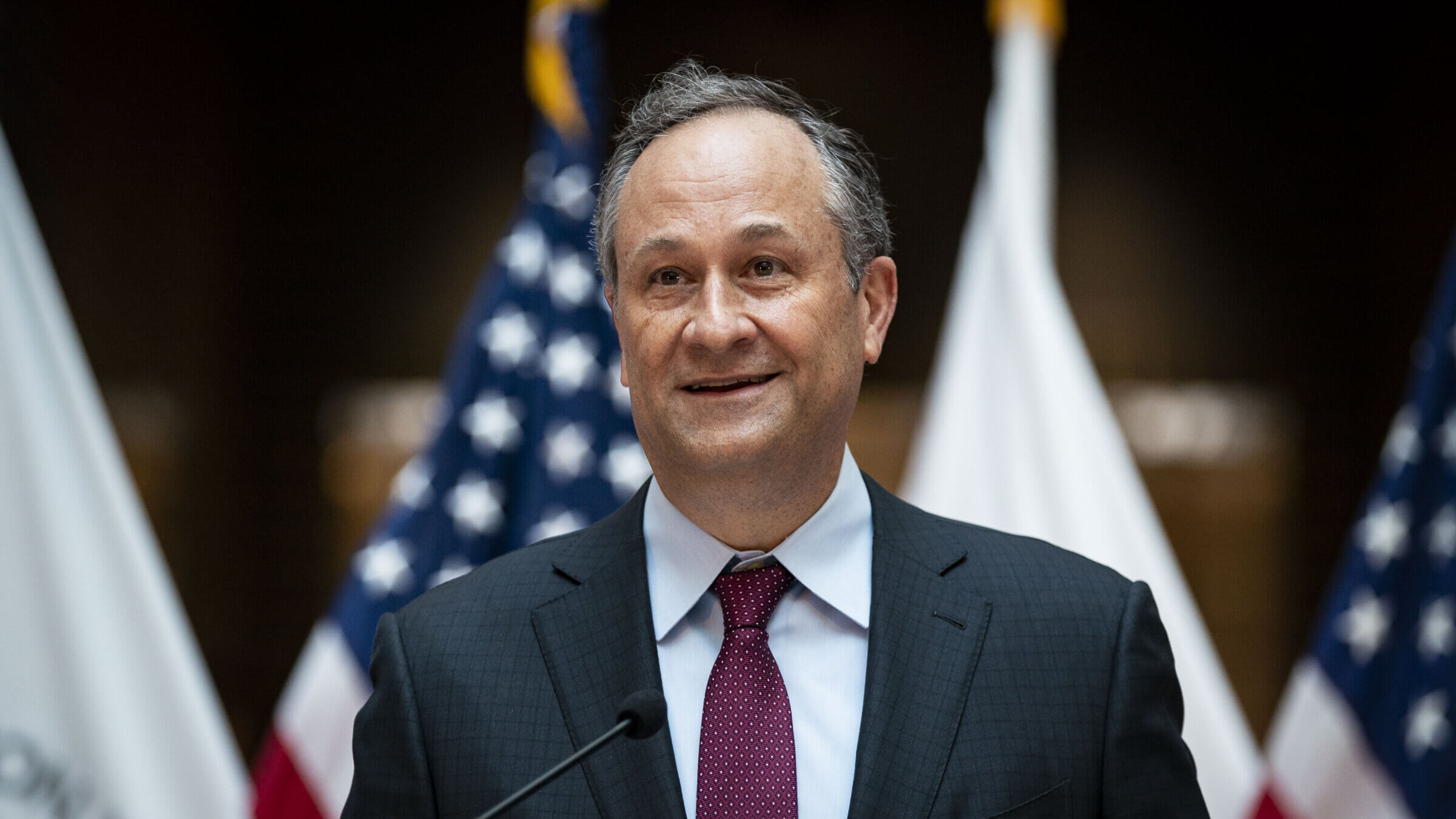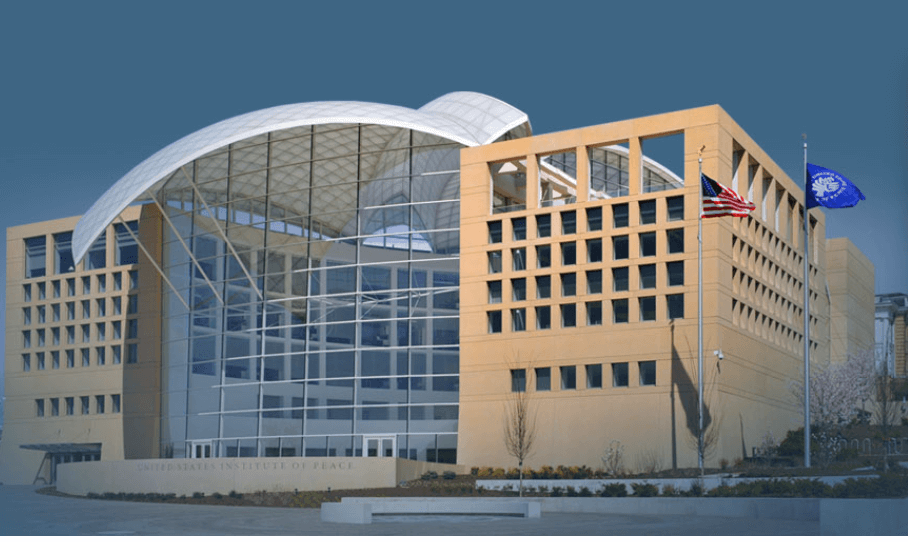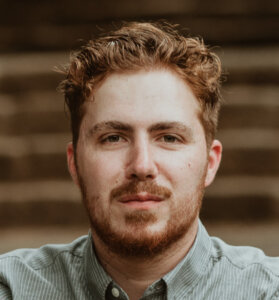Doug Emhoff weighs in on Judaism, interfaith work at Ramadan dinner
The Second Gentleman spoke about being in an interfaith marriage and the importance of holding religious leaders to account

Second Gentleman Doug Emhoff, pictured speaking U.S. Department of Transportation in January, addressed an interfaith iftar dinner in Washington, D.C. Thursday night. Photo by Getty Images
Second Gentleman Doug Emhoff spoke about the importance of both his Judaism and working with religious groups Thursday night at a Jewish-Muslim iftar, the meal eaten each night that breaks the daily fast during the Muslim holy month of Ramadan.
“I cannot stress enough how important it it is to me to not only be the first Jewish person in this role, but to openly embrace faith and to do it together on an interfaith basis,” Emhoff told attendees at the Muslim Jewish Advisory Council dinner in Washington, D.C.
Emhoff, who this year hosted what is believed to have been the first Passover seder at the Naval Observatory, the vice presidential residence, also spoke about his relationship with Vice President Harris. “It’s interesting being in an interfaith marriage myself,” Emhoff said.
He added that as a person from Los Angeles, which has a large Muslim population, he found it natural to have friends of different faiths but learned that not everyone shared that experience.
“You realize that it’s a big world, it’s a big country, and that my own experiences that I’ve had may not be the same experience that other people have,” he said. He urged the audience: “Learn from the Muslims that you know.”
The gathering took place in the atrium of one of the lesser known landmarks on the National Mall, the U.S. Institute of Peace, a striking building near the Lincoln Memorial designed by Israeli architect Moshe Safdie. About 130 people took part in the iftar — including a large cadre of Jewish and Muslim clergy and civic leaders.

The Ramadan fast ended while Emhoff was speaking and many in the audience began eating dates — a traditional iftar food — and sipping water as he spoke with Rashad Hussein, the U.S. ambassador for international religious freedom. Harris recently tested positive for COVID-19 and Emhoff wore a mask throughout the event.
“Unfortunately I’m in close contact with my wife,” Emhoff said to laughter. “Ordinarily I would have eaten that date like you wouldn’t believe.”
The event was the first of its kind hosted by the Muslim Jewish Advisory Council, and was held partly to mark this year’s rare convergence of Passover, Ramadan and Easter.
The council was created in 2016 by the American Jewish Committee in what was presented at the time as a partnership with the Islamic Society of North America, but the Muslim group quickly clarified that it was not co-sponsoring the effort.
Thurday’s iftar took place days after clashes at the Al-Aqsa Mosque in Jerusalem, which is at the site of what Jews call the Temple Mount — a holy place for both Muslims and Jews — and amid a period of some of rising tension between the communities in the United States. An official with the Council on American Islamic Relations drew criticism last fall after cautioning Muslim leaders against working with Zionist synagogues and other pro-Israel Jewish institutions.
Rabbi Julie Schonfeld, former president of the Rabbinical Assembly, spoke to the tensions inherent in interfaith work when she mentioned that her son had implored her to remind the audience that today was Holocaust Remembrance Day.
“We bring such powerful memories, such powerful emotions, such big expectations from our communities and our families to this kind of gathering,” Schonfeld said. “It’s also a challenge that we live in a communications environment that more than ever is focused on ratcheting up our emotions to pull us about.”
Schonfeld said it was incumbent on Americans from different backgrounds to transcend these divisions: “Nobody is going to pound on our doors and say, “No, no, no, you must get together, you must work together.’”
Echoing Schonfeld’s message, Emhoff implored the leaders present to press their partners in the religious community on what they were doing to improve the world.
“Call people out: if they say they’re allies, they say they’re collaborating and helping the community – well how?” Emhoff asked. “What actions are they taking?”






















